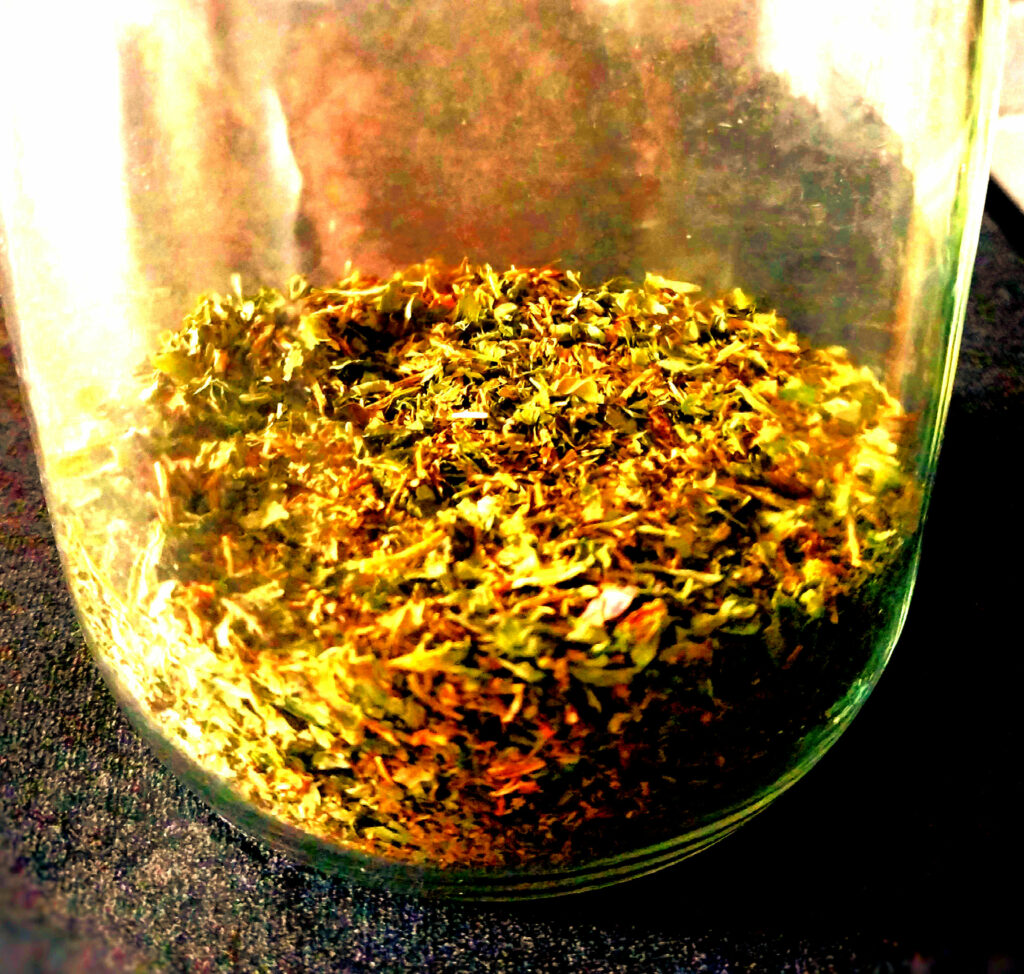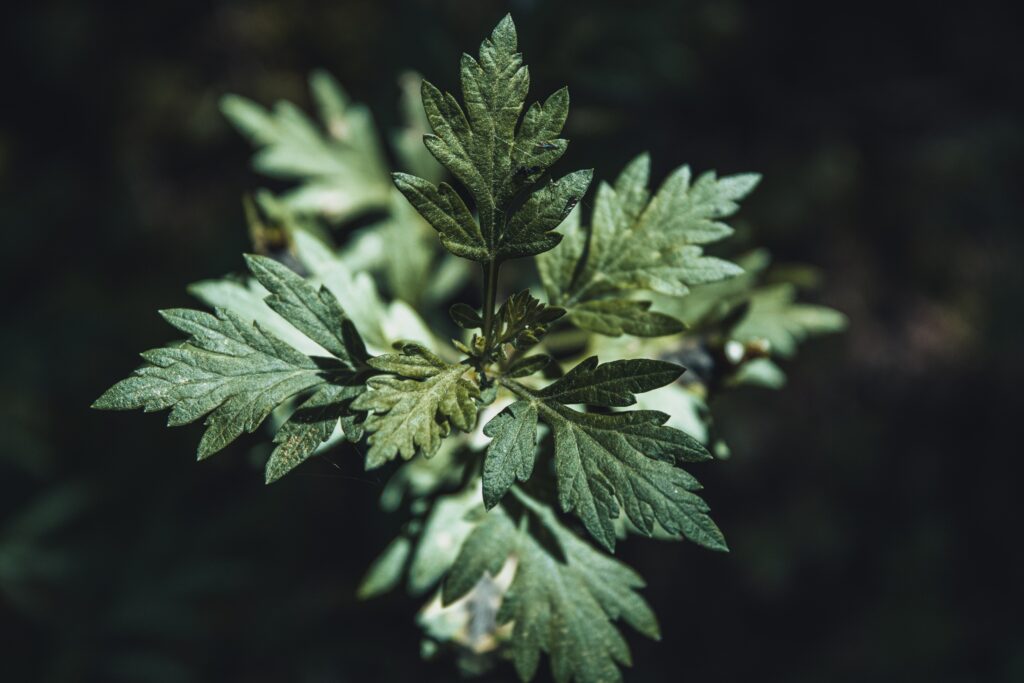Many believe that Mugwort is good for anxiety, and has been used in a number of cultures in medicine and rituals for many years.
Some believed that mugwort had magical powers, and was used to keep away evil spirits and protect people against having dreadful nightmares. It features heavily in pagan rituals such as offerings, and making dream pillows.
Perhaps in a world where things are a bit mundane and the same everyday, Mugwort reminds us of magic and mystery that still exists in the natural world. Read on and explore how mugwort is good for anxiety.

Mugwort for physical ailments
One of the most popular uses of Mugwort is for menstrual cramps, and was described by Dane and Stella De Luca Mulandiee in their book ‘Knowledge to Forage’ as the ‘women’s herb’ because it was known to bring on childbirth in pregnancy, and also to help ease pain.
As it stimulates blood flow, the herb can help with Irritable Bowel Syndrome (IBS) and with constipation.

Roman soldiers were known to put the leaves in their shoes, to help with the tiredness brought on by marching. The herb is also believed to have sedative properties, which supports proper and restful sleep.
Studies have shown that mugwort can help with:
- Effective against infective yeasts, as it is anti microbial and anti fungal.
- Cancer fighting properties, as it has been shown in some studies to support the death of leuakemia cells, and colon cancer cells.
- Supports the body’s protection of the liver.
- One study (Adams et al 2013) claimed that Californian Mugwort can treat attention deficit hyperactivity disorder (ADHD). Dried leaves are stuffed into a cloth 5 pointed star, which the child plays with daily, especially during times of excessive activity, and will also sleep with it. After a few weeks, the child will respond and become less active.
Mugwort good for anxiety and other psychological issues
I personally use the herb for helping to manage anxiety.
It seems to have a noticeable but subtle effect when drank in a tea, and the savoury flavour is not unlike a warming broth made in a cosy farmhouse kitchen.
Healthline.com reported that the Chinese have used Mugwort in moxibustion for many years, which essentially involves burning the herb and taking advantage of the smoke in different ways.
Advocates of this process claim positive benefits to life energy, and the treatment of inflammation and cancers. They also cite this study which shows how moxa smoke can improve the autonomic nervous system and induce a relaxing effect on the body.

Where to get Mugwort?
There are plenty of good shops on places like Etsy that sell affordable dried herbs. One of my personal favourites is Herb Embassy, who have a wide range and have provided a reliable service to me in the past.
How to use Mugwort for anxiety
Best to go easy at first. Pop a teaspoon of dried mugwort herb into an infuser or an empty tea bag (get paper ones on amazon, or resuable cloth ones on Etsy).
Of course, you can also mix other lovely herbs such as mint and lemon balm (also great for calming the body and mind), and put them into your own empty tea bags or infuser.
On the other hand, you could smoke it, or put the herb into a dry herb vaporiser like a Pax 3.
Developing tinctures is more tricky, but the skilled herbalist can extract the magic and goodness of the herb into a small potion, that can be taken by putting drops under the tongue and letting absorb for a minute.
Risks of using Mugwort for anxiety
Herbs and supplements can always interact with medications and other supplements, and some may not be appropriate for certain health conditions. Given that it helps with menstrual cramps and can induce labour, it should not be taken when pregnant or breast feeding.
There are other risks too. According to The Complete Guide to Herbal Medicines, Fetrow & Avila, Pocket Books, 2000, Too much mugwort can cause;
- skin rashes
- trigger allergic reactions (particularly if you’re allergic to hazelnuts)
- irritate acid reflux and stomach ulcers
- have bad interactions with blood-thinning medication
- cause uterine contractions and possibly miscarriage
Remember to always be cautious when using any herbal supplement and always consult a healthcare professional before using any herbal supplement. The number of studies that provide evidence for the benefits of Mugwort is still low, and more research is needed.
In all, Mugwort has a long history and a deep cultural significance. Many believe that mugwort is good for anxiety, and it’s a plant that can help us to reconnect with the wild, untamed aspects of ourselves and tap into the deep reserves of strength we have. But don’t take it lightly, and continue to enjoy and embrace the power of herbs.


Leave a Reply